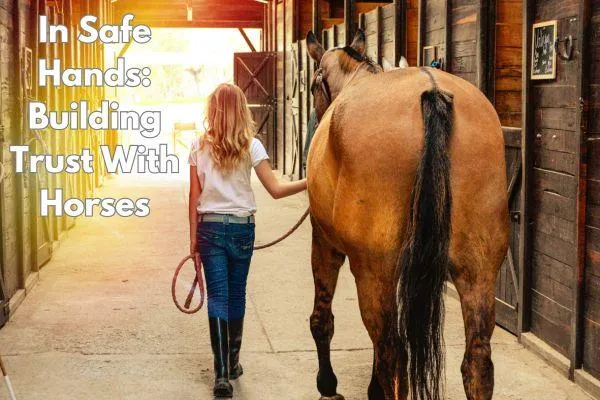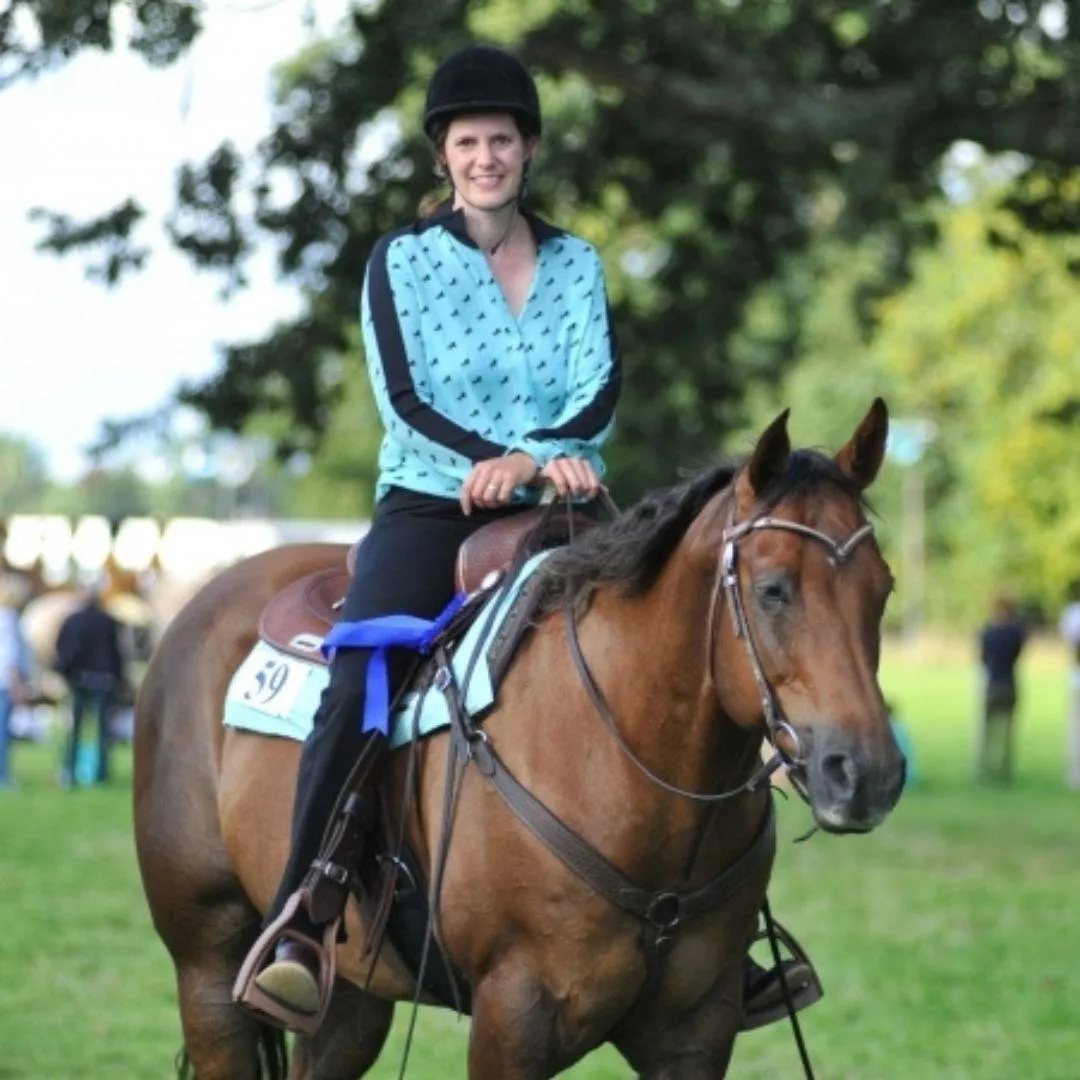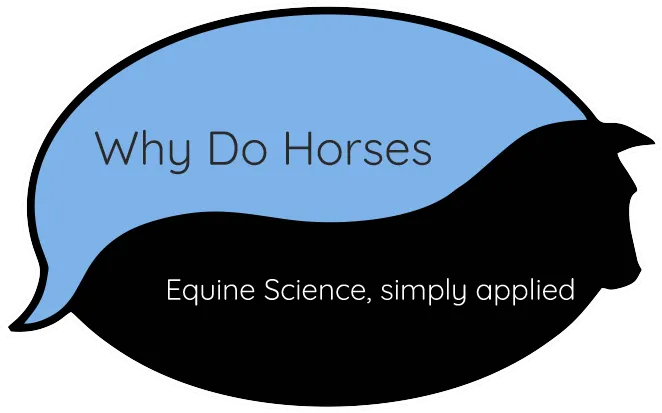Love Reading?
Articles
Find our blog posts and media articles all in one place!

In Safe Hands: Building Trust With Horses
Introduction:
Are you keen to build a strong relationship with your horse? Is developing trust at the top of your agenda? You’re not alone.
Often, when I speak to clients about coaching and what they’d like to achieve with their horse, confidence-building and the development of trust are common themes. These are hugely interesting topics and I’ve got lots to say on both, but for now I’m going to focus on trust because it’s so central to the horse-human relationship.
When we start to think about trust, it’s worth considering what trust actually is. The dictionary definition says that it is the “firm belief in the reliability, truth or ability of someone or something”. That’s particularly interesting because when we delve deeper into this, we can see that reliability is described as “the quality of performing consistently well”. That’s a very helpful definition when it comes to developing trust with our horses because we can begin to see how the way we interact with our horses can affect the development of their trust in us.
I coach all kinds of people and their horses. They are all so wonderfully different from one another and working on completely different things, yet the foundation of the science-based approach that I teach remains fundamentally the same.

👉Here are 7 of my Top Tips about how to build trust with horses:
Build enjoyable experiences for your horse
Enrichment! It’s a no-brainer here - building quality time with our horses must be enriching for them. It could be as simple as giving your horse a good scratch or perhaps taking your horse on a nature walk, exploring different horse-safe plants. Even giving your other enjoyable experiences, such as a sensory board or a ball to play with, and then hanging around to enjoy them together can help your horse associate you with positive things. If you haven’t had your horse for very long, it can take a little while to build a consistent history of positive experiences. However, essentially, it’s like starting a new chapter in the book of your horse’s life - you get to decide what fills each page!
When tension rises, take a break
Horses are experts at reading tension in their handler. As a prey species, they’ve evolved to be very sensitive towards the emotions of others. In fact, research shows that when people with negative feelings towards animals stroked a horse, the horse’s heart rate rose within the first few minutes. When people with positive or neutral feelings stroked them, it did not have the same effect on the horse. This highlights how important it is for us as handlers and caregivers to regulate our own emotions around horses and, when we can’t, we need to step away for a short while.
Use reward-based training where you can
The beauty of reward-based training is that it defines for the horse what we do want them to do. When they do the desired thing, they get a reward which means they are more likely to do the same thing next time. By training in this way, we can continue to build the relationship with our horses. In fact, research shows that horses trained using reward-based training are more likely to approach their handler, than those that aren’t trained in this way.
Be black and white in the rules you set
As adult humans, we can be very good at understanding different rules and how they all interlink. Our brains can manage rules that depend on particular contexts in order to come into play… “if this, then that”. Horses, on the other hand, do not have the same mental capacity and, whilst they can apply conditions to a certain degree, they don’t have the same ability that humans do. For this reason, we need to be really black and white in the rules we set for our horses when we handle them, so there's more chance that they can follow them correctly.
So, for example, rules like “I never let my horse eat grass when I’m leading him in-hand… except for Sunday afternoons when I’m feeling happy after lunch” just aren’t going to cut it! Instead, try to be as consistent as possible when defining expectations as to how you want to handle your horse.
Be reliable and dependable
This relates to being black and white in our interactions with our horses, but concerns our own emotional self-control. We need our horses to learn that we will be consistent in our interactions with them. It’s easy to be a little irritable when we’re overtired or not feeling well, but inconsistency in how we interact with our horses only serves to erode any trust we have built up. Instead, take a step back and gather your emotions. Remember, we want to be a calming presence for our horses and for that we need to be consistently calm in the way we interact with them.
Work at the root of the problem to change negative emotions
Because many horses have multiple caregivers throughout their lives, it’s sometimes difficult for us to have a full picture of what our horse’s prior experiences are before coming into our care. Sometimes we simply have to join the dots from the little information we have. Despite our best efforts to build a positive and confidence-giving experience for our horses during their time with us, some horses have fears which extend from their previous experiences. In cases where this happens, it’s important to try to work through the problem from its perceived cause, rather than just treating the symptoms. Working with a Clinical Equine Behaviourist can pay dividends when it comes to changing a horse’s deep-down emotional response to a particular situation.
Take downtime with your horse
It’s easy to have a lot of expectations about the time we spend with our horses, especially when we’re working towards a personal goal like a desired competition result or particular training outcome. However, from the horse’s perspective, this could feel like many demands are placed upon them during time spent with their humans. It’s equally, if not even more, important for us to spend downtime with our horses where we are simply passing the time in each other’s presence. This time might see you doing some light chores around your horse, giving them scratches if they enjoy that or simply reading a book in their company.
I hope you’ve found my Top Tips helpful. I’d love to hear more about what you do to build trust with your horse, so drop me a line or two.
If you’d like more information on what I offer in terms of relationship building with horses, please feel free to book a call with me: https://whydohorses.com/book-a-call or simply drop me an email to [email protected]

Blog Posts Straight to Your Inbox!
What do clients say?

Amy D

We had an intro session on clicker training with Louise, it was fabulous, very informative. After reading up about clicker training and getting a bit confused with all the different approaches, Louise made it very clear and explained it all thoroughly.

Eiddwen S

I contacted Why Do Horses for help with issues I was having travelling my horse. During our sessions I found myself wanting to learn more about equine behaviour and body language and I have realised I was missing a lot of knowledge. Why Do Horses have changed my entire outlook on horse training and behaviour, this is something for which I will be forever grateful!


